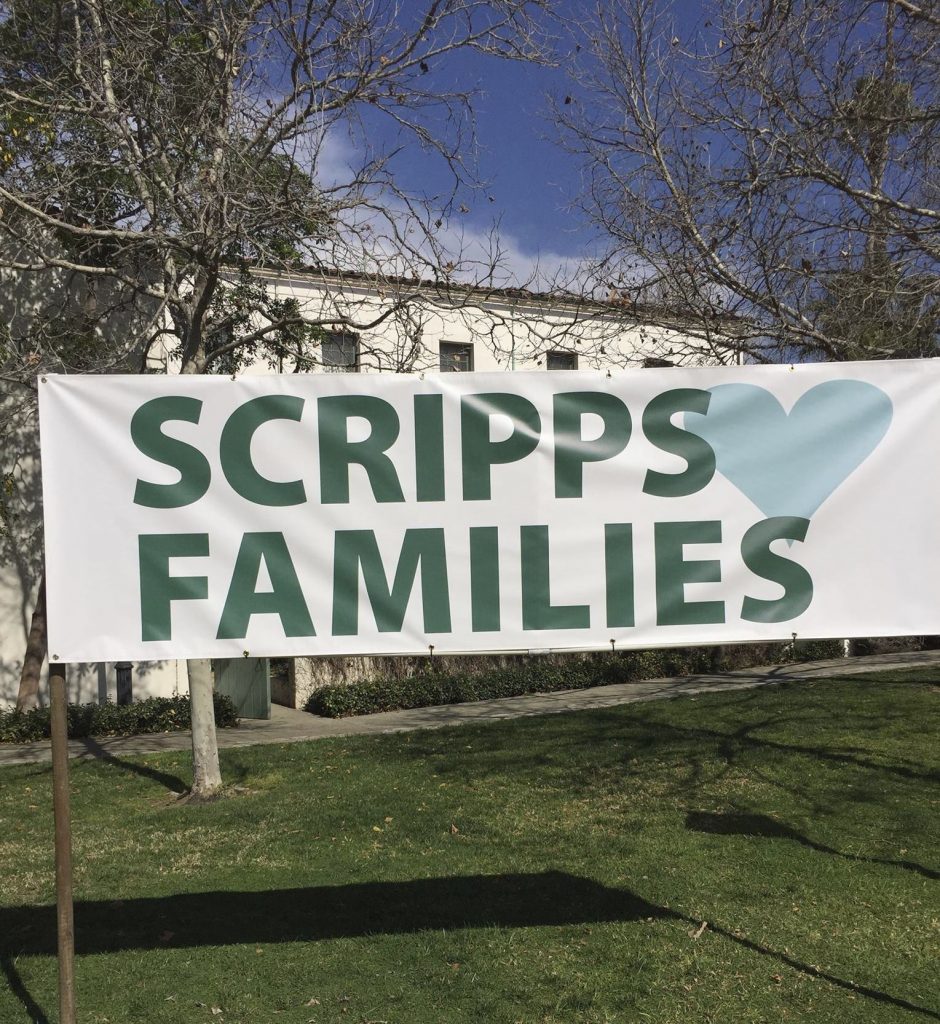By Anna Gao
Transitioning from high school to college can be hard to navigate for both students and families.
To aid with this change, Scripps posts documents on its website and hosts a myriad of events for families of students to engage and connect them with the lives of their Scripps students.
But for some Scripps families, one obstacle stands in the way of being able to access these resources—the language barrier.
Luci Diaz (SCR ‘21) recalls that after her parents could not find any sessions in Spanish during Admitted Students Day, they opted out of returning later for events such as New Students Orientation and Family Weekend.
“When Family Weekend came around, it was not even really a question of whether or not they would come. I knew my parents wouldn’t because of the language barrier,” Diaz said. “They did not see a point in making the trip back here to sit and not understand anything.”
Laura Le (SCR ‘21) also notes the inaccessibility of such events for her mother, whose native language is Vietnamese. She describes her mother’s English skills as conversational, but often struggles with reading and writing in English.
“For a school that boasts inclusivity, my mom is unable to understand and participate in many events due to the inherent racism in our community and the lack of interpreters, the lack of important documents being available in different languages, and simply the lack of respect for families that do not have the same privilege of being able to communicate their needs,” Le said.
Diaz points out the isolating effects on her and other Scripps students and their non-English speaking family members.
“These events remind me that my background is not the norm here and there is not anything being done by Scripps to make me or my family feel included,” Diaz said.
Feelings of exclusion are not the only struggle students and their non-English speaking family members face.
Diaz must translate everything from letters to important documents for her parents.
“One of the bigger challenges is financial aid. This becomes difficult because I am not entirely familiar with the process, but it is something that I need to understand and get correct to ensure that I can afford my education,” Diaz said.
Le also reported facing similar struggles with Financial Aid.
“I am more than grateful for the support I am receiving from Scripps, yet it is extremely unfair to many families who are not able to understand the nuances of the financial aid system, especially in a language they cannot understand fully,” Le said.
On its website, Scripps College states that it, “seeks to attract a diverse student body and to build a diverse faculty and staff,” (President’s Advisory Committee on Diversity and Inclusivity).
Diaz points out a flaw in the execution of of this goal. “Scripps needs to consider the fact that if you attract diverse students, then there needs to be extra resources to support the different backgrounds.”
Le agrees. “If we are going to require families to provide the same information, then it is essential to the mental well-being of students and to the economic situations of low-income families for the school to provide the resources that help families understand what they are getting themselves into,” she said.
Scripps College staff members declined to interview, but issued a statement regarding the topic.
“Scripps College strives to meet the needs of its students, and that includes providing resources and tools to effectively communicate with non-English speaking parents and families,” they wrote.
The statement mentions some resources available to non-English speaking parents and family members including Admission Office staff members, Financial Aid assistant director and associate director who are fluent in Spanish and English.
According to the statement, Financial Aid also has access to a volunteer translator for Mandarin.
It also mentions that, “Certain documents posted on the College’s website are also provided in both English and Spanish”
Scripps also mentions two programs that “support students and their families who many be non-English speaking,” the First-Generation @ Scripps and the Scripps College Academy programs.
However, it should be noted that the Scripps College Academy is a pre-college program for high school students designed to help students who seek to become the first in their family to attend college, not a program for supporting current Scripps students.
“If a school wants to increase family participation and wants to help students feel more welcome, providing language resources for families is a crucial step to achieving that,” Le said, “Scripps can do better.”



